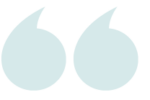BioScout
YEAR INVESTED
- 2025
INVESTMENT THEME
- Adaptation and resilience
- Disruptive technologies

Challenge
Airborne fungal diseases are a major threat to global agriculture, causing an estimated US$80 billion in crop losses each year. For growers, the challenge is that the most effective time to apply fungicides is during the early, symptomless stage of infection—yet traditional detection methods are too slow or imprecise, leading to unnecessary yield loss, higher input costs, and the risk of chemical resistance. Timely, field-level spore data is essential for smarter, more sustainable disease management.
Traditional disease detection relies on manual spore traps, which can take weeks for lab results, or weather-based models that lack pathogen specificity or knowledge of their presence. Additionally, remote sensing technologies only detect disease after infection is established. This lack of real-time, actionable data forces growers into reactive spraying, increasing chemical use and undermining both efficacy and sustainability. The horticulture sector, with its high-value and disease-sensitive crops, is particularly exposed to these limitations.
Solution
What BioScout does: BioScout has developed a patented, AI-powered platform that brings together autonomous air-sampling hardware, a real-time disease dashboard, and predictive analytics. The system delivers actionable disease risk data within 6–24 hours, enabling growers to make informed decisions about when and what to spray—well before symptoms appear. This approach empowers growers to optimise fungicide use, maximise yield, and track disease spread with unprecedented precision.
Why is this a Hort Innovation Venture Fund investment?
BioScout’s technology is directly relevant to Australian growers, with detection capabilities spanning key pathogens such as Alternaria, Botrytis, rusts, and mildews. The platform aligns with Hort Innovation’s focus on disruptive, sustainability-driven solutions that help reduce chemical use and protect the productivity of fruit and vegetable industries.
BioScout stands apart from both legacy and emerging competitors. Its platform offers automated, plug-and-play surveillance that has already been validated across broadacre-scale areas (20–1000 hectares), with rapid turnaround and minimal maintenance. Unlike manual traps or inference-only models, BioScout’s system is fully autonomous and delivers real-time, pathogen-specific insights. The company’s growing spore imagery dataset, built in collaboration with expert pathologists, creates a defensible data moat that strengthens its AI models and predictive power.
BioScout’s technology is commercially proven, with over 130 units deployed by the end of 2024 and growing international pilots. The company serves a diverse customer base, including leading crop protection firms, processors, and premium wine producers. Its hardware-enabled subscription model delivers strong first-year and lifetime margins, supporting scalable growth as the network expands.
What can this investment change for growers?
By quantifying pathogen pressure at the field level, BioScout enables growers to move from calendar-based to evidence-based spray programs. This shift reduces unnecessary chemical applications, improves yield protection, and supports compliance with sustainability standards. In vineyards, for example, BioScout’s sensors track Botrytis, Downy, and Powdery mildew, providing timely alerts that guide targeted interventions. For orchards and vegetable crops, similar insights replace guesswork with data-driven decisions.
Future direction and benefit for horticultural growers
BioScout’s roadmap includes the launch of LeafScout (a spray coverage sensor), the next-generation SporeScout V10 hardware, and expansion into new applications such as grain storage and pollen/allergy monitoring. These innovations will further reduce chemical inputs, enhance quality assurance, and support growers in meeting export and regulatory requirements. The company’s ongoing R&D and commercial traction position it as a key enabler of sustainable, high-impact solutions for Australian horticulture.
Beyond just horticulture
BioScout’s platform is not limited to horticulture. In partnership with GRDC, it is building a regional airborne disease surveillance network for major grain-growing regions, while in viticulture, its 24/7 vineyard sensors help manage key fungal threats. This cross-sector traction highlights the platform’s versatility and broad commercial potential.

JANE PARKER
Agricultural Development Manager at McCormick Foods Australia

